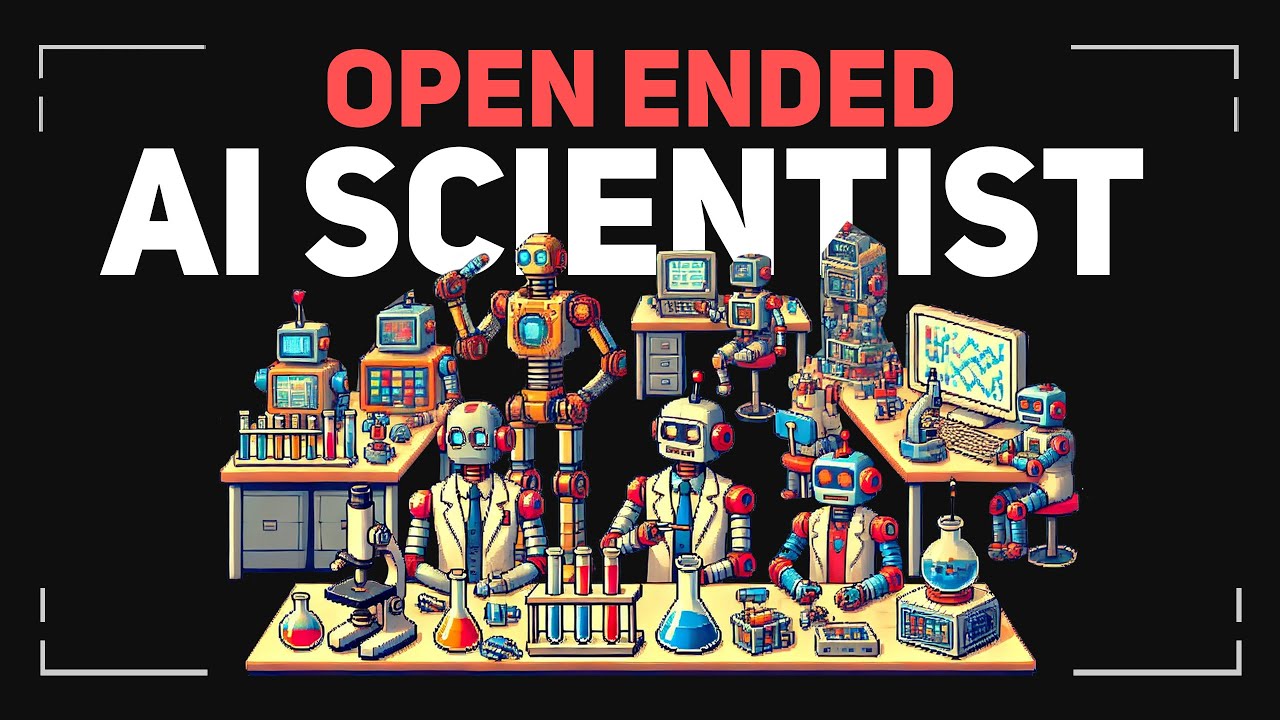The video explores the concept of an “AI Scientist” as proposed in a research paper, which suggests that AI could automate scientific discovery, particularly in machine learning, but critiques its limitations in generating genuine PhD-level research. It raises concerns about the potential for AI to dominate the research process, leading to questions about the originality of AI-generated work and the implications for the future of scientific inquiry and human researchers.
The video discusses the implications of a research paper titled “The AI Scientist Towards Fully Automated Open-Ended Scientific Discovery,” which suggests a future where artificial intelligence (AI) could dominate scientific progress. The presenter expresses a sense of existential dread after reading the paper, highlighting concerns about the potential for AI to take over scientific discovery processes. The discussion emphasizes the importance of understanding the research before speculating on its implications, while also acknowledging the hype surrounding the AI scientist concept.
The AI scientist framework presented in the paper focuses on automating scientific discovery, specifically in the field of machine learning. The presenter notes that machine learning is a suitable topic for automation due to its reliance on computational resources rather than physical experimentation. However, the video critiques the overvaluation of the AI scientist’s capabilities, pointing out that it does not genuinely generate PhD-level research but rather mimics the process of a PhD student. The presenter emphasizes the need for a grounded perspective on the research and its limitations.
The AI scientist operates through a three-stage process: idea generation, experiment iteration, and paper writing. In the first stage, the AI brainstorms and ranks ideas for novelty. The second stage involves modifying existing code and executing experiments, while the final stage focuses on writing the research paper and simulating peer review. The presenter highlights that much of the process relies on templates, which raises questions about the originality and creativity of the AI-generated research.
Despite some successful outcomes, the video points out that the quality of the AI-generated papers is questionable. The AI’s performance in simulating peer reviews is also critiqued, with results indicating that the AI reviewer struggles to accurately assess the quality of submissions. The presenter notes that while the AI can produce papers that superficially appear legitimate, they often lack the depth and rigor expected in real scientific research. This raises concerns about the future of AI-generated research and its acceptance in the scientific community.
The video concludes by exploring the broader implications of AI in scientific discovery. As AI systems become more capable, there is a possibility that they could take over the entire research process, sidelining human researchers. The presenter discusses the potential for a future where AI-driven research corporations dominate scientific advancements, leading to a widening gap between those with access to advanced technology and those without. Ultimately, the video reflects on the existential challenges posed by AI’s rapid development and its impact on the future of scientific inquiry.
